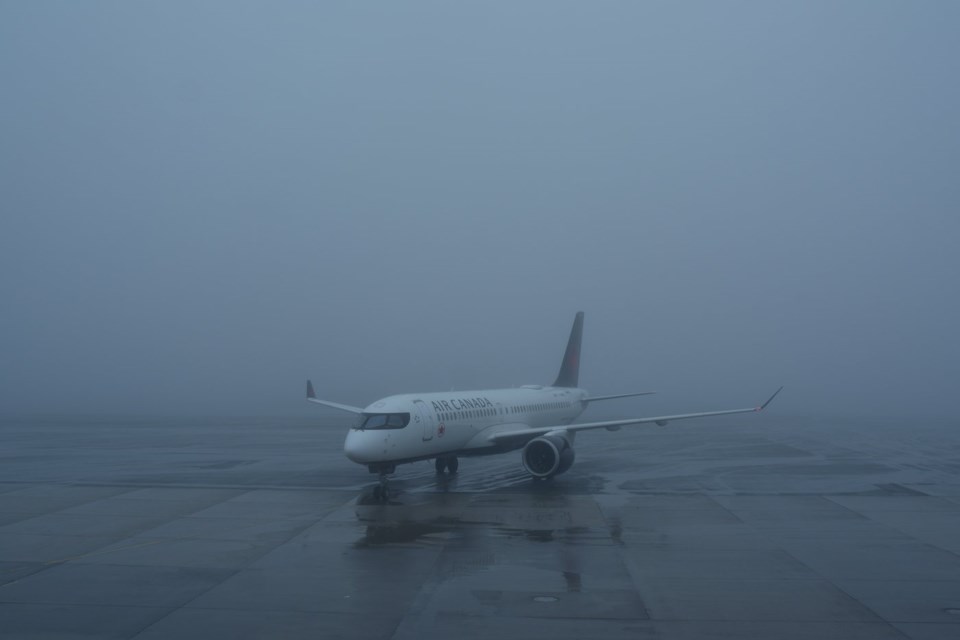Market concentration, higher prices and a mounting tally of customer complaints are fuelling a Competition Bureau study into Canada's airline industry.
In a release Monday, the regulator said two carriers continue to dominate the skies while new airlines seem to struggle to enter the market. Domestic fares also appear "relatively high" and more and more passengers are filing complaints, it said.
The backlog of customer complaints about airlines has hit a record high topping 72,000, according to the Canadian Transportation Agency.
The bureau's review, which will draw on feedback from the public and interested parties, looks to pave the way for recommendations to government that would "make it easier for new businesses to compete and easier for consumers to make informed choices."
First announced on May 9, the market study is the bureau's first since it gained new powers in December that include the ability to compel information from companies.
Matthew Boswell, the competition commissioner, stressed the importance of the airline industry to residents and the economy.
"Since the Canadian population is spread out over vast distances, other modes of transportation may not be feasible replacements for air travel. More competition in the industry will mean lower prices, better services, and improved productivity," Boswell said in the release.
Over the past 13 months, newer low-cost carriers Swoop and Lynx Air have disappeared from the skies and WestJet scooped up Sunwing Airlines. The latter two made up 72 per cent of seat capacity from Western Canada last year, according to the bureau.
Meanwhile, Air Canada and WestJet have strengthened their grip on the domestic market over the past year, even as rival Porter Airlines rapidly expands in a bid to become the country's third major airline.
Canada's two largest carriers commanded 82 per cent of domestic traffic among national carriers last month versus 74 per cent in April 2023, statistics from aviation data firm Cirium show.
The diminishing set of operators coincides with a six per cent decrease in domestic flight volume between April 2023 and this month, though that may be due in part to a renewed focus on international trips.
While big cities remain amply served, smaller ones have fewer options, which can also result in higher prices and, when things go awry, stranded passengers.
Over the past five years, the Competition Bureau has raised concerns about the merger of Canadian North and First Air and the would-be acquisition of Transat by Air Canada, which scrapped the plan in 2021 amid regulatory hurdles in Europe.
The latest study is not an investigation into specific allegations of wrongdoing, the Competition Bureau noted Monday.
"However, if the bureau finds evidence that someone may be doing something against the law, we will investigate and take appropriate action," the regulator said.
John Gradek, who teaches aviation management at McGill University, said the review should consider service levels to various parts of the country as well as rules around flight changes by airlines after the ticket was purchased.
This report by The Canadian Press was first published May 27, 2024.
Christopher Reynolds, The Canadian Press




